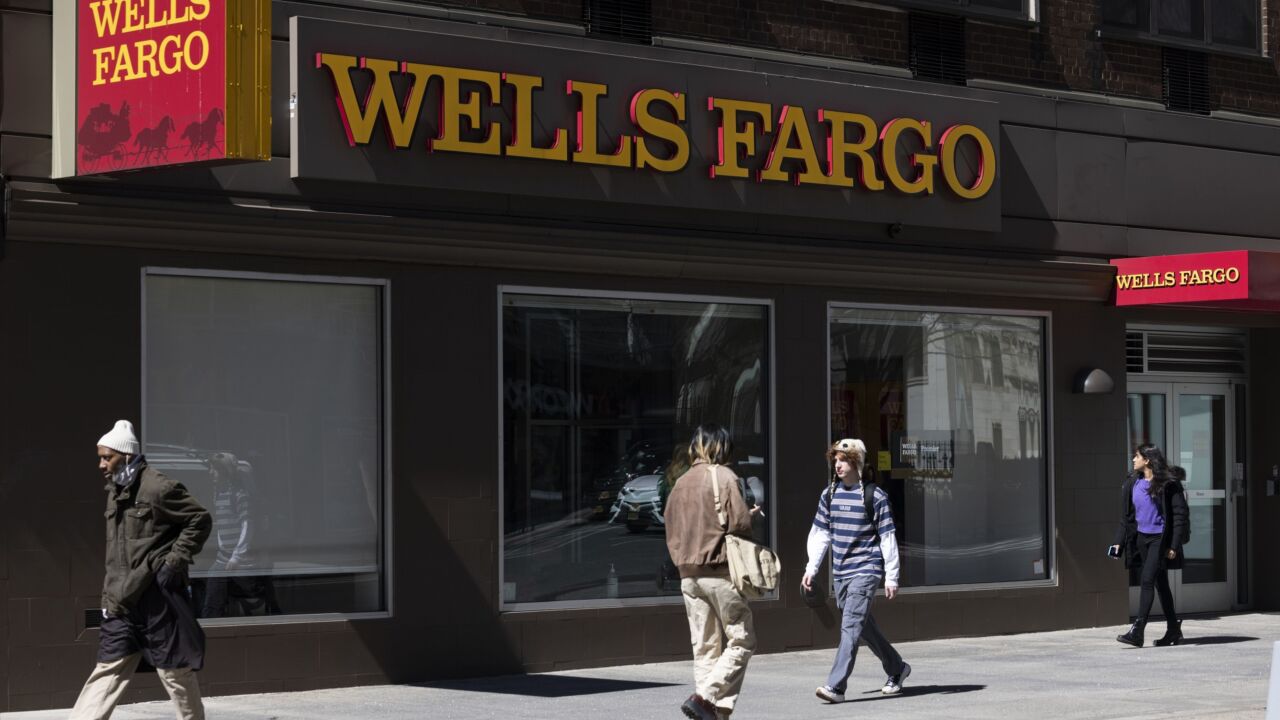Ask Martin Glynn almost any question about HSBC USA Inc.'s future and the answer that comes back is the same: Household.
Mr. Glynn, who last month became HSBC USA's president and chief executive officer, sees the consumer finance giant purchased last March as a key engine for growth - not only for his division but for the London parent company as a whole.
"One of the great benefits of the Household acquisition is taking their model and skills and applying them to other countries around the world," he said in a telephone interview. "It's very exciting for HSBC globally and in the U.S."
The agreement HSBC Holdings PLC announced a year ago to buy Household International Inc. raised eyebrows. The Prospect Heights, Ill., company was facing an onslaught of regulatory, legal, and financial troubles.
But today analysts say the purchase was just the right move for HSBC. "You had one of the world's great liquidity generators … buying one of America's largest asset generators," said Alex Potter, a London analyst for Lehman Brothers. They two "fit very well together."
HSBC, one of the world's more conservative lenders, hit a snag as interest rates plunged, analysts said. It suddenly found that it "desperately" needed the high-yielding, stable assets a consumer finance company offers, said Simon Maughan, an analyst at Allianz AG's Dresdner Kleinwort Wasserstein in London.
Household was "the perfect acquisition for HSBC in a low-interest-rate environment," Mr. Maughan said. "That's what people miss when they look at this deal. Maybe it wouldn't be a great deal for Citigroup Inc. or Bank of America Corp., but you have to look at it from HSBC's perspective."
HSBC paid $14.2 billion for Household and said the purchase was the biggest reason its net interest income rose 48% in the first half, to $11.2 billion. Household also moved HSBC from No. 8 in the world by asset size at the end of 2002. It will probably end this year among the top five. (Midyear assets totaled $983 billion.)
For Household, dependent on costly warehouse credit, the deal was a cheaper way to fund its lending. And years of predatory-lending charges had taken a toll; the public relations nightmare culminated with a $484 million settlement with the Federal Trade Commission in October 2002.
(Just last week Household said it had proposed a settlement with borrowers and the consumer advocacy group Association of Community Organization for Reform Now, which had brought a class action against it claiming predatory lending practices. Household said it agreed to institute a foreclosure-avoidance program for delinquent borrowers and to fund Acorn-sponsored financial counseling and literacy programs for three years.)
Before the HSBC deal, Household also faced a hostile bond market and was having trouble funding itself, said Peter Toeman, a London analyst with Morgan Stanley. "Household was facing a breakdown of its business model," he said.
HSBC, which has a history of buying companies at the bottom of the earnings cycle, timed the deal to take advantage of Household's problems, which had driven its stock price to just seven times earnings, Mr. Toeman said. HSBC's lower cost of funds have greatly improved Household's margins.
Mr. Glynn, born in Montreal in 1951, joined HSBC in 1982. By 1999 he was the president and CEO of HSBC Bank Canada. This September's announcement that William Dalton, the chief executive of HSBC Bank PLC, would be retiring started a series of management moves that led Mr. Glynn to the U.S. division.
Mr. Glynn turned aside most questions about the direction in which he plans to take the U.S. division, except to say that Household will be a major component of everything he does.
"The linkage with Household has given us a lot of opportunity to expand mortgages, insurance, auto, and credit cards," he said. "Clearly, in the short run that is our highest priority."
Globally, Mr. Glynn said, HSBC Holdings is eyeing Mexico, Brazil, Eastern Europe, and a few markets in Asia for Household.
But though HSBC is "still studying" the brand and branch issues, it has no plans to turn Household's 1,400 offices in 46 states into traditional retail bank branches, he said. Furthermore, most HSBC USA branches, apart from a few in California and Florida, will be in New York, where there are now 400, he said.
In New York, Mr. Glynn said, HSBC USA is growing on a number of fronts beyond consumer finance. It is focusing on middle-market commercial banking, upscale retail business, and private banking - building in the latter effort on Republic New York Corp., which it bought four years ago.
The HSBC USA's corporate and institutional banking businesses are growing "very nicely" as well, Mr. Glynn said. "We're really growing on all fronts."
Mr. Glynn called his parent company an "active participant" in the acquisition market but noted that it is digesting several deals and has more pending. "We've been very busy," he said.
(In October it agreed to buy Bank of Bermuda Ltd. for $1.3 billion and Lloyds TSB's Brazilian operations for $815 million. HSBC has been in Brazil since 1997 and operates a consumer finance arm there.)
The London company has historically used a combination of organic growth and acquisition, and "that's likely to be the future as well," Mr. Glynn said. "But our strategy for the time being is to simply grow organically, to take advantage of synergies that come with our new partners."
Part of that synergy comes in the form of another advantage that Mr. Maughan of Dresdner Kleinwort Wasserstein said Household provides HSBC - credit and underwriting skills honed by years of subprime lending.
"The management of Household, regardless of what the U.S. market thinks of them, brings world-leading credit-scoring technology," he said.






